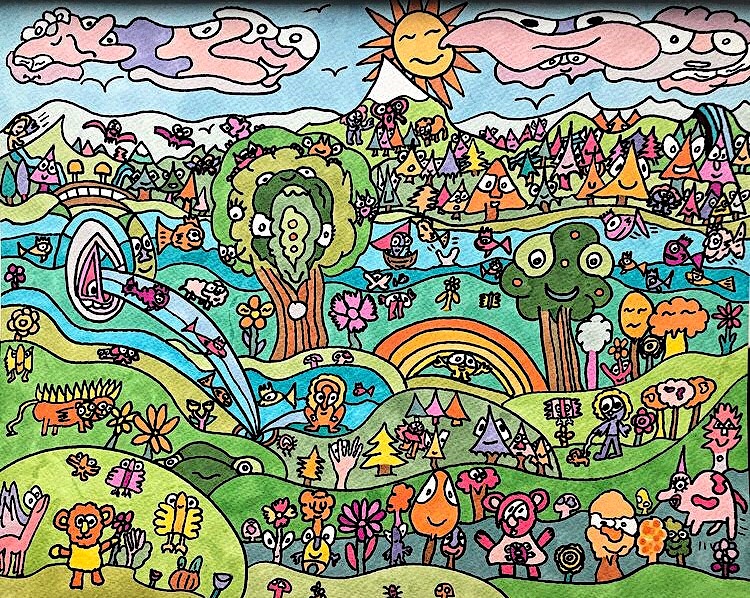I can’t say that I don’t care about the environment but I can’t prove that I do. When dinner party debates transition to climate change, I sit back and monopolise the wine. It’s easy to get away with apathy if you do little things – like eat less meat, bring your own flask to coffee shops and step aside when Extinction Rebellion is running amok. The deeper I delve into environmental discourse (which is messier than the Season 3 Reunion of Love & Hip Hop: Atlanta) I feel a greater responsibility to care. Environmentalism is a social justice issue. Solving it involves a negotiation of resources, opportunities and privileges within global society. It is more political than utilitarian and, surprisingly, less scientific than political. So it’s essential to engage critically and to vote sensitively when it comes to the environment. For example, there is a wrong way to achieve net zero, so simply voting because a party says they’ll do something about climate change is not enough. Apocalypse is unlikely, but if things aren’t done right the most vulnerable will bear the costs.
Within this context, my lukewarm attitude towards the environment stands against the kind of person I want to be. Subconsciously, I believed we had a trustworthy scientific plan; we didn’t need too many cooks in the kitchen, only the political will to see it through. I just needed to scream “GO AWF!” when Greta gave a speech and get on with my day. In reality, we don’t have enough cooks in the kitchen, we need more representative thought. Also, I’m not confident in “the plan”. Most strategies for climate neutrality (including the greenest cities like Copenhagen) only account for emissions produced nationally; not those occurring elsewhere for resources and services consumed nationally. For example, the UK hopes to ban the sale of new petrol and diesel cars by 2030. The move towards electric cars to reduce national emissions does not account for the environmental impact of extracting cobalt in the DRC – which is very high – but it does keep Elon Musk the richest person in the world for a while.
Going green off the back of Africa doesn’t really make sense to me. I understand that the DRC, for instance, has a lot to benefit from cobalt exports, but it also has an economy to build with those profits that will rely heavily on burning fossil fuels. African countries should lean towards hydroelectricity, but they definitely have a right to continue to burn fossil fuels to develop, because their emissions over the years are comparably negligible. You would think for the west, on the other hand, a truly sustainable approach would aim for the reduction of mobility, rather than have everyone riding electric cars made using cobalt. For example, building more well-funded community centres to encourage conviviality over consumption. I’m concerned that there isn’t much critical engagement with how we’re achieving the desired outcomes of environmentalism. Popular environmental discourse is mostly fangirling over renewables, which are expensive even for rich countries and not efficient enough to power whole countries.
A lot of other things about environmental policy and coverage seem inconsistent to me. I have more and ongoing research to get into. What is clear, however, is I never had an excuse not to care. The world’s richest 1% cause twice the amount of global CO2 emissions of the poorest 50%. And about 100 companies are responsible for the lion’s share of global emissions historically and currently. These individuals can afford to live where the air is cleaner and are more able to withstand and recover from increasingly severe weather (i.e. hurricane season). Similarly, rich nations are less susceptible to the more intense flooding caused by rising temperatures. We have modern water and flood control systems, unlike many developing countries. Tragically, the environmental costs of the operations of rich nations, rich individuals and the companies they own are externalised but their profits are not. Climate change is a threat to rich people and poor people, but that threat is not alike. In reaching net zero a lot of compromises will need to be made, but these compromises must also be equitably assigned: some of us are guiltier than others.
While companies have a lot to be accountable for, on an individual level, we in the west, with our energy intensive lives and demand for constant supply, have a large role to play in reducing emissions. We buy the products they sell. Diminishing our complicity involves significant lifestyle changes like reducing meat consumption, driving less and being less wasteful. This will be difficult, so it’s also important to vote in policies that incentivise us to make better decisions. Voting for bills that just tax and regulate these companies probably won’t solve the problem.
Reading about all of this reminded me of the film 2012. I think if an apocalypse were likely, things would probably go down like they did in the film: despite their fault, rich people (and a handful of useful professionals) would make it on one of four Arks and the rest of us would be left out to die. In real life we wouldn’t even know the Arks existed; Chiwetel Ejiofor would not be there to save us, and, I imagined if he were, someone would knock him out. That gave me some perspective.

Art by Brad Franco
LikeLike